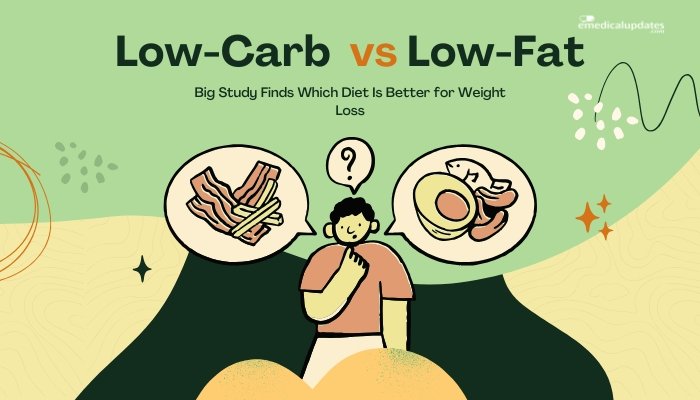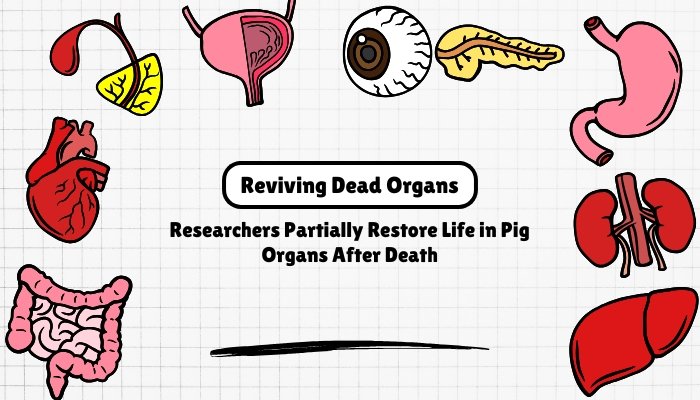Introduction
For decades, the debate over the most effective diet for weight loss has been dominated by two popular approaches: low-carbohydrate and low-fat diets. Each side has passionate advocates. Low-carb supporters argue that reducing carbs lowers insulin levels and promotes fat burning, while low-fat proponents emphasize the benefits of lowering calorie-dense fats to reduce total energy intake.
A major randomized controlled trial published in leading journals like JAMA and New England Journal of Medicine has provided valuable insights by comparing these diets directly. This article breaks down the study findings, scientific explanations, and what it means for anyone trying to lose weight.
The Big Study: Design and Goals
Researchers enrolled over 600 overweight adults and randomly assigned them to either a low-carb or low-fat diet for 12 months. Both groups received nutrition counseling, behavioral support, and were encouraged to eat high-quality, whole foods.
Key aspects of the trial:
- Calorie restriction was not enforced; participants were told to eat until satisfied.
- Both groups avoided added sugars, processed foods, and refined grains.
- The goal was not only to see weight loss but also to measure metabolic markers like blood sugar, cholesterol, and insulin sensitivity.
This design addressed an important real-world question: If people follow a healthy low-carb or low-fat plan, which one leads to greater success?
Weight Loss Results
After one year:
- Low-carb group: Lost an average of about 5.3 kg (11.7 lbs).
- Low-fat group: Lost an average of about 5.7 kg (12.6 lbs).
- Difference: Statistically insignificant.
This means neither diet proved superior for weight loss when both emphasized healthy, minimally processed foods.
Metabolic Health Outcomes
Although weight loss was similar, there were subtle differences:
- Cholesterol and triglycerides
- Low-carb diets tended to raise HDL (“good cholesterol”) and lower triglycerides more effectively.
- Low-fat diets lowered LDL (“bad cholesterol”) slightly more.
- Blood sugar and insulin
- No significant differences were found between groups in fasting glucose or insulin resistance.
- Both diets improved markers of metabolic health in those with prediabetes.
- Sustainability
- Dropout rates and adherence were similar, suggesting that both approaches are equally manageable long term.
Why Results Were Similar
Several factors may explain why weight loss was nearly identical:
- Calorie balance is key
Despite no strict calorie targets, participants in both groups naturally reduced calorie intake by choosing whole foods and avoiding processed snacks. - Individual variability
Genetics, baseline metabolism, and personal preferences strongly influenced outcomes. Some individuals lost more weight on low-carb, while others responded better to low-fat. - Diet quality over macronutrients
Emphasizing vegetables, lean proteins, and unprocessed foods mattered more than whether carbs or fats were reduced.
Personalized Nutrition: One Size Doesn’t Fit All
The trial highlighted the role of personalized nutrition. Interestingly, researchers looked at participants’ genotypes and insulin secretion to see if they could predict who would do better on each diet. The results?
- No strong genetic or metabolic predictors emerged.
- However, individual responses varied widely—some lost over 25 kg, while others gained weight—on both diets.
This suggests that personal preference, lifestyle, and adherence may matter more than rigid macronutrient ratios.
Strengths and Limitations of the Study
Strengths
- Large sample size (600+ participants).
- Long duration (12 months).
- Real-world applicability (no extreme restrictions, focus on quality foods).
Limitations
- Participants were generally motivated and received counseling, which may not reflect everyday settings.
- The trial did not assess very low-carb ketogenic diets, only moderate low-carb.
- Results may not generalize to people with specific conditions (e.g., advanced diabetes, heart disease).
Practical Takeaways for Weight Loss
Based on this study and other evidence:
- Focus on food quality
- Choose whole grains, lean proteins, nuts, seeds, fruits, and vegetables.
- Limit added sugars, refined carbs, and processed fats.
- Pick the diet you can stick to
- Adherence is the single strongest predictor of success.
- If you love bread and fruit, low-carb may feel restrictive. If you enjoy nuts and avocados, low-fat may frustrate you.
- Individual monitoring
- Track weight, blood sugar, cholesterol, and energy levels.
- Adjust diet based on personal response.
- Consider medical conditions
- Low-carb may benefit people with high triglycerides or insulin resistance.
- Low-fat may be better for those with high LDL cholesterol.
Expert Opinions
Nutrition experts increasingly agree that:
- Both diets can work if built on whole foods and not processed junk.
- The war between carbs and fats is less important than overall dietary pattern.
- Personalization and sustainability should guide dietary recommendations.
Conclusion
The landmark study comparing low-carb and low-fat diets found no clear winner for weight loss. Both groups lost a similar amount of weight and improved metabolic health when they emphasized whole, unprocessed foods.
The key lesson is that diet quality, calorie balance, and long-term adherence matter more than whether you cut carbs or fats. Instead of asking “Which diet is better?” a more useful question is “Which diet is better for me?”
In the end, the best diet is the one you can sustain—one that fits your taste preferences, lifestyle, and health needs. Whether you choose low-carb, low-fat, or a balanced approach, focusing on whole foods, portion control, and consistency will deliver the most lasting results.



